Premium Only Content
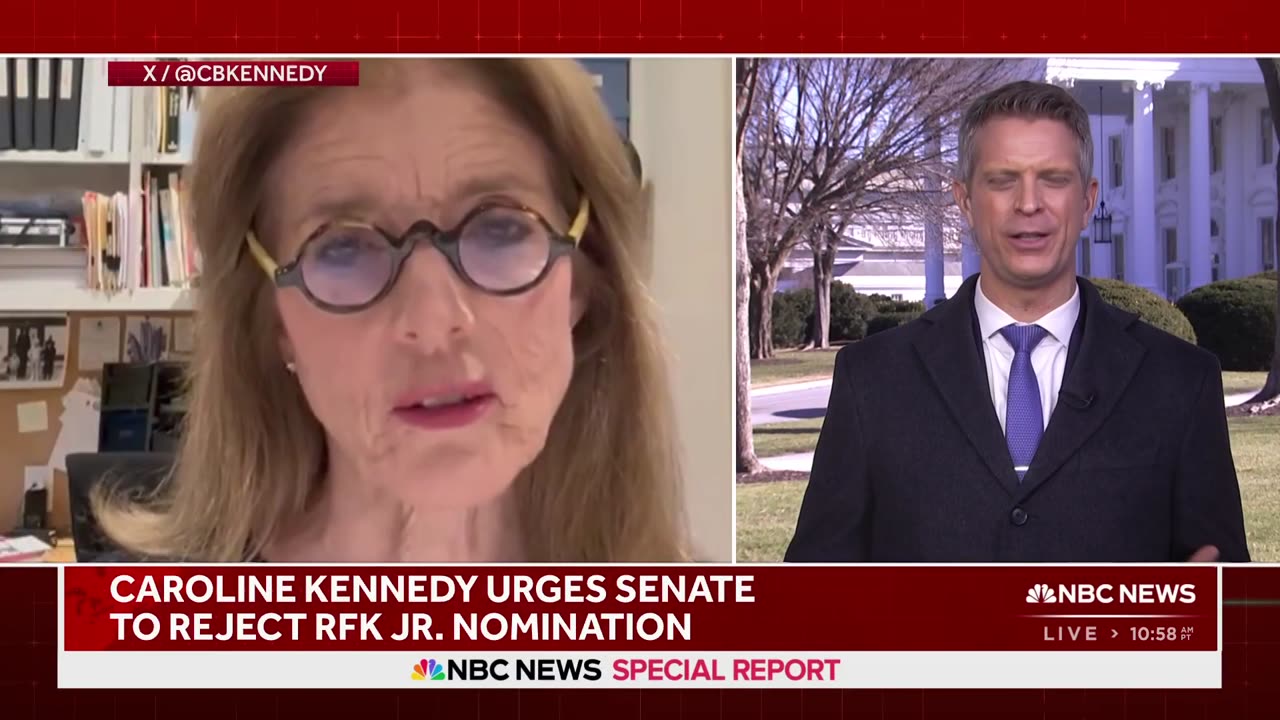
Autism community fears RFK Jr. would set back decades of progress
For decades, the scientific community has worked to dispel a thoroughly debunked theory that vaccines cause autism and finally shift its focus to find true potential causes.
But now, autism advocates say they are fearful that if Robert F. Kennedy Jr. is confirmed as health and human services secretary, it could undermine years of progress in unlinking autism and vaccines, while potentially diverting precious research dollars to a theory already discredited by hundreds of studies worldwide. They warn he would wield vast influence over who sits on committees and steer policy.
And some condemned Kennedy’s past rhetoric around autism, calling it stigmatizing and insulting.
Alison Singer, founder of the Autism Science Foundation, said she welcomes an examination into potential causes of autism, but focusing on vaccines could be dangerous for children.
“A new crop of parents will be afraid, who may believe that vaccines could harm their children, potentially cause autism, and those parents might withhold life saving vaccines from their children,” Singer said.
She said the concern is that “funds are spent re-examining what we know does not cause autism, and are directed away from looking in new potential areas of what’s causing autism. There’s so much that we need to fund when it comes to autism research.”
Kennedy is scheduled to begin his Senate confirmation hearings on Wednesday. He’s expected to face tough questions about the misinformation he has promoted around public health over the years, including his claims about vaccines.
Kennedy, who founded an anti-vaccine nonprofit and grew into one of the most prominent anti-vaccine activists in the world — a crusade from which he and associated groups have made millions of dollars — has prominently advanced a false contention that vaccines cause autism.
“I do believe that autism comes from vaccines,” Kennedy asserted to Fox News in 2023.
He went on to say that his position was misunderstood; he just wants to test the science behind them. But it’s Kennedy who rejects the science in front of him, critics say.
“Are we [also] reviewing the question about whether the Earth is flat? This is settled science,” said Rep. Kim Schrier, D-Wash., who previously worked as a pediatrician. “We already looked into vaccines. They don’t cause autism, but let’s look elsewhere. And elsewhere might be genetics. It might be the fact that now we’re putting a lot more kids under the umbrella of autism who never would have fallen under that umbrella before. … It could be a lot of things, but bringing up settled science is only going to undermine confidence in vaccines, decrease immunization rates and put the entire population at risk.”
As the head of HHS, Kennedy would hold massive sway on the direction of health policy in the United States. He would lead a number of agencies, including the Food and Drug Administration, the Centers for Disease Control and Prevention and the National Institutes of Health. President Donald Trump’s pick for the CDC, former Rep. David Weldon of Florida, is further fueling fears because of his own statements doubting vaccine safety.
Colliding with history
Kennedy often begins his argument that vaccines cause autism by spinning a narrative that he didn’t know severely autistic children when he was growing up, and he doesn’t know any at his age now. The increased incidence, he concludes, coincides with the prevalence of childhood vaccinations.
“I bet you’ve never met anybody with full-blown autism your age,” Kennedy told podcaster Joe Rogan in 2023, launching into a script he often uses in public appearances. “You know, head-banging, football helmet on, nontoilet trained, nonverbal. I mean, I’ve never met anybody like that at my age, but in my kids’ age now, one in every 34 kids has autism. And half of those are full blown.”
However, people with developmental disabilities were for decades institutionalized — and, in Nazi Germany, worse — or otherwise kept out of the public eye, a far cry from the integrated schools many public systems attempt to achieve today.
The practice of institutionalizing children with disabilities was particularly prevalent in post-war America, and often in facilities with poor conditions.
One example of the gap between public understanding of kids with disabilities came in 1965, when Kennedy was about 11 years old. His father, then a U.S. senator from New York, denounced the treacherous conditions at Willowbrook State School. In one of the most shameful exposés in U.S. history, disabled children were found to be living in filth, amid abuse and overall horrific conditions, sparking nationwide outrage.
“I think all of us are at fault and I think it’s just long overdue that something be done about it,” Robert F. Kennedy Sr. said at the time of Willowbrook.
Zoe Gross, director of advocacy with the Autistic Self-Advocacy Network, noted that the autism diagnosis was still evolving in the ‘60s. She held up Willowbrook as an example of how those with developmental and other types of disabilities were once hidden from society.
“If you look at the video of the conditions that the people in Willowbrook were in, you’ll see the people that RFK Jr. describes as having been missing through his childhood. And you’ll see where they went, where they were forced to go,” Gross said.
Ignoring science
Autism diagnoses have risen from about 1 in 150 children in 2000, to 1 in 36 today. In that period, the definition of who is autistic broadened considerably, capturing a dramatic span of abilities. It now ranges from people who live independent lives to people who are nonspeaking or who face serious medical challenges like seizures.
Researchers point to a strong genetic link to the complex disorder and have said there’s much more research needed to determine what, if any, environmental factors play into it. Autism Speaks, one of the nation’s largest autism research organizations, is one group that has called for more research into the role that factors like exposure to chemicals and parental age potentially play.
-
 LIVE
LIVE
SavageJayGatsby
1 hour agoSpicy Saturday with Mally! | Road to 100 | $300 Weekly Goal for Spicy Bites!
706 watching -
 6:04:40
6:04:40
Akademiks
6 hours agoRoc Nation & Meg Thee Stallion did a 7 HOUR Deposition with me. Drake Secret Kid Finally Revealed.
18.1K1 -
 24:19
24:19
Stephen Gardner
2 hours ago🚨BREAKING: FBI Raid of John Bolton’s House Reveals THIS!
20.3K57 -
 8:31
8:31
MattMorseTV
4 hours ago $0.82 earnedTexas just did the IMPOSSIBLE.
22.1K56 -
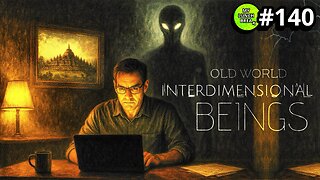 24:39
24:39
MYLUNCHBREAK CHANNEL PAGE
1 day agoInterdimensional Beings at Borobudur
29.4K18 -
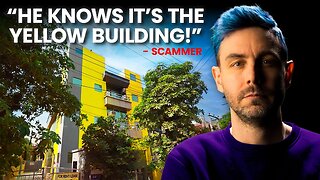 12:42
12:42
Scammer Payback
23 hours agoCalling Scammers who were Raided
9.46K10 -
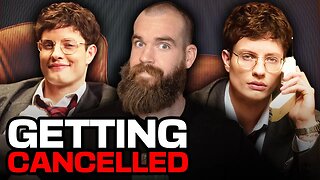 23:31
23:31
IsaacButterfield
15 hours ago $0.05 earnedThe Woke Mob Is Really CANCELLING Matt Rife For THIS…
9.83K14 -
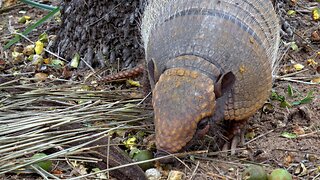 1:23
1:23
WildCreatures
8 days ago $0.97 earnedThis mother armadillo eating her palm nuts is truly adorable
10K15 -
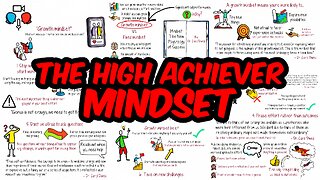 8:59
8:59
The Art of Improvement
10 hours ago $0.02 earnedHow to Build the Most Powerful Mindset for Success
9.9K2 -
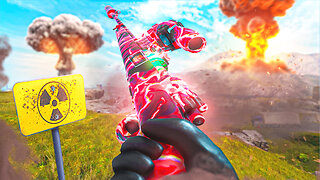 18:12:15
18:12:15
GritsGG
1 day ago36 Hour Stream! Most Wins 3420+ 🧠
237K11